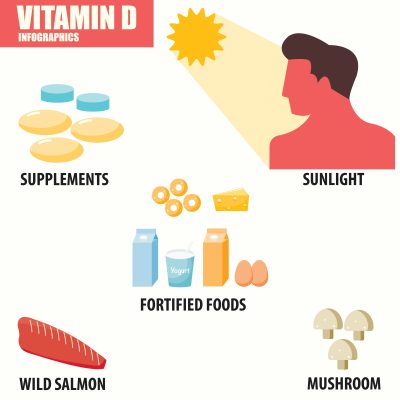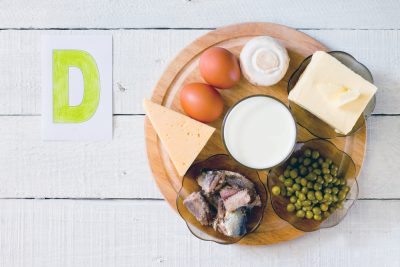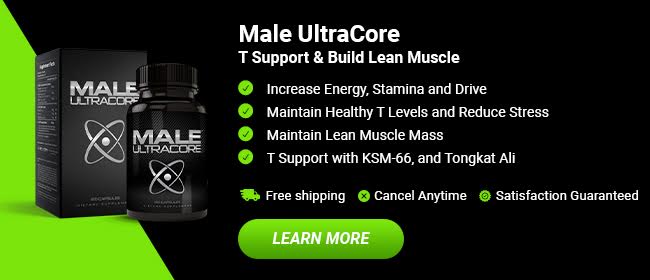Do you like reading labels of food items that you buy in your local groceries? If yes, you might notice that certain milk brands say that their product contains vitamin D. Vitamin D is not naturally present in pasteurized milk. However, this vitamin is now incorporated in lots of milk brands because of our dietary needs.
Since vitamin D is incorporated in milk, there should be a fundamental reason to do so. Read more of this article to know why.
What’s so good about milk and vitamin D?
Vitamin D deficiency is a significant burden in the US population. Statistics have confirmed that 40% of people in the US have vitamin D deficiency. Thus, dietary intake of vitamin D needs to be better incorporated in the food consumed by people.

Even though vitamin D is called the “sunshine vitamin,” since the sunlight is a natural source, it is not good to rely on it alone. First, ultraviolet rays from the sun can cause harm to your body and increases the risk of skin cancer. Moreover, people living farther from the equator have significantly less exposure to sunlight. Overall, it is impractical to rely on sunlight as your source of this essential vitamin.
With keeping all these in mind, researchers and health professionals came up with the idea to increase your vitamin D intake from your diet. Lots of food contain vitamin D, as we will talk about later. The most significant of these would be fortified milk enriched with vitamin D.
Researchers have learned from the past. During the 1930s, people added vitamin D to cereal and milk to address vitamin D deficiency. And this worked! Fewer children were diagnosed with rickets. Rickets makes your bones weak since you have little vitamin D in your body.
Vitamin D in milk produces good synergy. Milk is a natural source of calcium. This is essential to keep your bones strong. But, calcium is not readily absorbed by your bones. If enriched with vitamin D, the vitamin helps absorb calcium into the bones. Therefore, these two work hand-in-hand to strengthen your bones.
Vitamin D and calcium together help you prevent and even treat osteomalacia. This condition occurs where your bones become soft.
Indeed, vitamin D’s incorporation in milk is a wise choice. You should know if you are getting a significant amount of vitamin D per serving and if it suffices to prevent vitamin D deficiency.
How much vitamin D is in a glass of milk?
Milk enriched with vitamin D has around 100 IU or 2.5 mcg of the vitamin for every serving of an 8 oz cup. To visualize, this means that an 8 oz cup can give you 15-20% of your daily vitamin D needs.
With this amount, drinking milk with vitamin D can increase blood levels of vitamin D to help you get adequate amounts of this essential vitamin.
You can examine milk carton labels and compare the amount of vitamin D it contains. To give you an idea, Stonyfield Organic Whole Milk has 120 IU of this vitamin. Also, Lactaid Fat-Free Milk and Borden Milk both have 100 IU.
What is the recommended daily amount of vitamin D?
You cannot neglect your vitamin D intake. You need this to support the growth and maintenance of strong bones, muscles, and nerves. But how much vitamin D do you actually need?
Your age and health conditions dictate the amount of vitamin D recommended for you. For adults, you need a daily amount of 600 IU of vitamin D. However, people over 70 years old need more, 800 IU per day. Also, a lot more is needed if you have vitamin D deficiency.
Note that a glass of milk enriched with vitamin D can give you at most 20% of the recommended amount per day.
Vitamin D deficiency: signs and symptoms
People have trouble getting this amount. This is why vitamin D is being incorporated into as many food products as they can in the market. Still, it is good to be aware if you have vitamin D deficiency. Typically, this is done by having blood tests. However, not everyone needs to get this regularly checked.
To know if you may have vitamin D deficiency, lookout for some of these signs and symptoms. This includes pain on bones, muscle weakness, generalized fatigue, and depressed mood.
Other than these symptoms, be aware that chronic kidney disease can increase your risk of being vitamin D deficient.
However, if you are healthy, you can obtain the amount you need with your diet.
Alternative vitamin D food sources
Previously, it was mentioned that you only get up to 20% of your vitamin D needs with a glass of milk. So, you need to know other dietary sources of vitamin D to help you reach the amount that you need for the day.
Many everyday food products can help you achieve enough vitamin D. Other than fortified milk and cereal, vitamin D is naturally present on eggs, cheese and mushrooms. Also, in sardines, liver, beef, and tuna fish. These have lots of vitamin D in them. Furthermore, a tablespoon of cod liver oil can even give you as much as 1360 IU of vitamin D. that would surely help you meet your dietary needs.
Conclusion: Do you need a vitamin D supplement?
Vitamin D supplements would only be essential if you cannot achieve your recommended vitamin D intake even with your diet. For example, if you are vegan who do not always consume dairy, vitamin D supplements would be your next choice. These supplements are available in D2 and D3 forms. Both are vitamin D but involve two different natural sources. Moreover, studies have shown that vitamin D3 is more effective as a supplement.
Would you like to know if you can get too much vitamin D? Yes, you can, but this is very rare. An excessive dose of vitamin D supplements is the leading cause of it.
As long as you get enough dietary vitamin D, you can avoid vitamin D deficiency and its related health problems.








COMMENTS